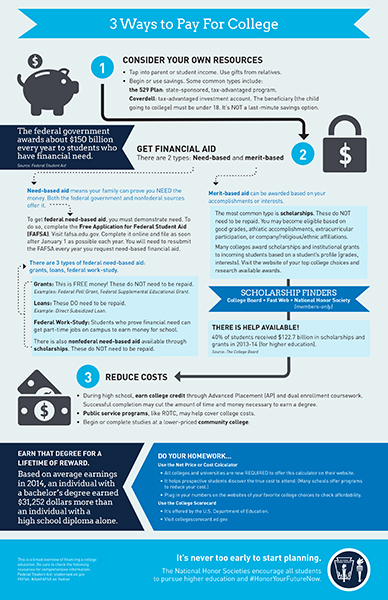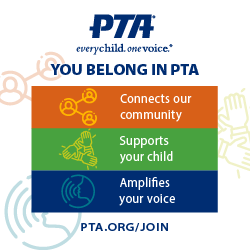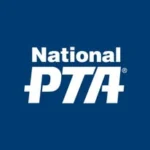It’s the time of year when most college-seeking students have found out if they’ve been accepted into their school of choice, and for some, it’s when senioritis starts to set in. However, there are still critical steps your children need to be taking to ensure they are fully prepared for college and beyond during the remainder of their senior year. As a parent, your role in this preparation is essential.
When I was a college admissions professional, I looked for well-rounded students—those who not only studied hard and made good grades, but also actively engaged in a meaningful way in school, home and the surrounding community. Even after receiving an acceptance letter, good grades and hard work still count during the remainder of high school and won’t be overlooked by college admissions. As for the summer, volunteer and leadership opportunities are great ways for your child to make a difference outside of the classroom and continue to build skills needed for college success.
To exemplify how this kind of experience can create well-rounded, successful students, National Honor Society has enlisted award-winning actor and National Honor Society alumnus Hill Harper to be a voice for the “Honor Your Future Now” campaign. This campaign from the National Honor Society and National Junior Honor Society provides resources to help students build skills and experience within our five pillars of membership: scholarship, service, leadership, character and citizenship.
Harper is helping educate and motivate students with his personal success story and shares these thoughts on the National Honor Societies: “Getting to and through college and onto a successful career can be daunting for many students because they may not know when to start and what path to take in building their skills and experience. My situation was no different, but through the recognition, support and direction of the National Honor Society, I was empowered to start building my future at an early age and achieve my goals.”
 After students build the necessary skills and experience and receive their acceptance letters, what about planning how to pay for college? New research that we commissioned here at the National Honor Societies shows that 50% of college-seeking students worry they’ll be unable to pay for their college education. This underscored the need for programs like ours to help ensure students know about the financial resources available and understand all their financial options.
After students build the necessary skills and experience and receive their acceptance letters, what about planning how to pay for college? New research that we commissioned here at the National Honor Societies shows that 50% of college-seeking students worry they’ll be unable to pay for their college education. This underscored the need for programs like ours to help ensure students know about the financial resources available and understand all their financial options.
Even with just a few weeks to go until graduation, there is still time to think about these tips from the National Honor Societies:
- Consider Your Student’s Resources. These can include parent income, student income, gifts from relatives or tapping into savings accounts, such as the 529 plan.
- Get Financial Aid. This can include merit-based aid or need-based aid. Merit-based aid is most commonly awarded through scholarships, but could also include institutional grants offered by colleges and universities. Need-based aid is available when families can prove they need the money. Rising seniors and college students who are requesting need-based aid for the next school year can do this by completing the Free Application for Federal Student Aid (FAFSA) as soon as possible after October 1. For current seniors, the deadline to submit the FAFSA for the 2016-17 school year varies by state and college, so it is important for you and your child to check the deadlines that apply to you. If it’s too late for your family this year, remember to have the FAFSA filled out in time to apply for the next school year.
- Reduce Costs. Taking steps like earning college credit by successfully finishing Advanced Placement (AP) coursework may cut the time and money needed to earn a degree. AP exams occur the first two weeks of May. Remind your son or daughter that to get the AP credit, they will need to earn a designated score on the AP exam, so studying is essential! Seniors can also consider taking summer classes at their community college to get a jump start on college credits. Have them double-check that the credits from the courses they select are transferable to the college they will attend in the fall.
- Do Your (Parental) Homework. Look into the true cost of attending your child’s school by using the Net Price or Cost Calculator, which all colleges and universities are now required to have on their website.
Let’s continue to help our students plan for their college and future success. Let’s empower students to enrich themselves with experiences that will celebrate who they envision themselves to be. Visit HonorYourFutureNow.org to help your child make the most of the rest of their school year today.
 Dr. Jonathan Mathis currently serves as the director of the National Honor Societies at the National Association of Secondary School Principals (NASSP) and was previously the director of education and training at the National Association for College Admission Counseling, where he was responsible for the professional learning and leadership preparation for more than 14,000 college admission professionals.
Dr. Jonathan Mathis currently serves as the director of the National Honor Societies at the National Association of Secondary School Principals (NASSP) and was previously the director of education and training at the National Association for College Admission Counseling, where he was responsible for the professional learning and leadership preparation for more than 14,000 college admission professionals.


















